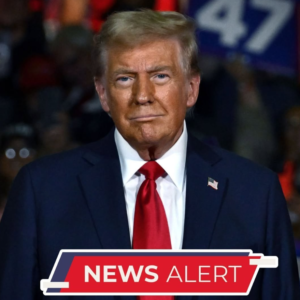In January 2025, President Donald Trump signed Executive Order 14188, titled “Additional Measures To Combat Anti-Semitism,” which has significantly impacted foreign students involved in pro-Palestinian protests on U.S. college campuses. This order directs federal agencies to identify and deport non-citizen students who have participated in such demonstrations, citing concerns over antisemitic activities. UNILAD+4Wikipedia+4The Times of India+4The Times of Israel+3The Daily Pennsylvanian+3The Times of India+3
Background and Implementation
The executive order was introduced against a backdrop of increasing pro-Palestinian activism in response to the ongoing conflict in Gaza. The administration expressed concerns that some protests included aggressive demonstrations, harassment of pro-Israel and Jewish students, and vandalism of school property. In response, the order mandates investigations into student visa holders involved in such activities, with the potential revocation of their visas. MEMRIThe Daily Texan+1Wikipedia+1
Impact on Universities
The enforcement of this order has led to significant consequences for several academic institutions. Columbia University, for instance, faced the revocation of approximately $400 million in federal funding due to alleged tolerance of antisemitic activities linked to pro-Palestinian protests. This action prompted the resignation of the university’s interim president, Katrina Armstrong, who expressed a desire to return to her previous role focusing on science and healing. Other universities, including Harvard and the University of Pennsylvania, have also experienced funding freezes and increased federal scrutiny. Axios+8Financial Times+8Wikipedia+8Business InsiderThe Verge
Case Study: Mahmoud Khalil
A notable example of the order’s impact is the detention of Mahmoud Khalil, a Syrian-born permanent U.S. resident and activist. Khalil was detained by U.S. Immigration and Customs Enforcement (ICE) in early March 2025, with the Department of Homeland Security alleging his activities aligned with Hamas. His detention sparked protests at Columbia University, where students demanded transparency regarding the university’s involvement and called for his release. New York Post+1Wikipedia+1
Broader Implications
The executive order has raised concerns among scholars and academic leaders about academic freedom and institutional autonomy. Some faculty members have filed lawsuits challenging the administration’s actions, arguing violations of First Amendment rights. Additionally, right-wing organizations have been reported to support the administration by tracking and exposing student activists, contributing to a climate of fear on campuses. Financial Times+1The Verge+1The Verge+1Business Insider+1
While some universities have complied with the administration’s directives by suppressing controversial speech and disciplining protesters, others, like Rutgers University, have begun to push back, proposing alliances to protect academic freedom. The future of the American university system, renowned for its intellectual freedom, remains uncertain as it navigates these challenges.
